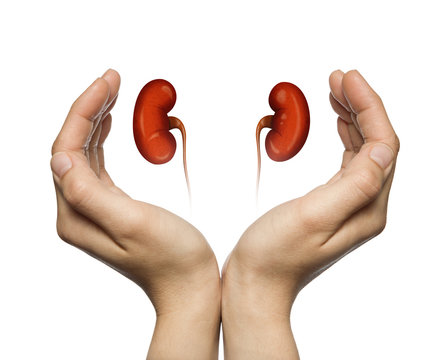Empowering Equality in Organ Donation: Unveiling the Gender Disparities in India’s Organ Transplant Landscape

Empowering Equality in Organ Donation: Unveiling the Gender Disparities in India’s Organ Transplant Landscape
In a groundbreaking revelation, a recent study analyzing the organ donation and transplantation landscape in India has shed light on a concerning trend—four out of five living organ donors are women, while an equal proportion of recipients are men. Delving into the data from 2019, the study underscores a deep-rooted gender disparity in organ donation and transplantation, hinting at underlying societal pressures and gender roles that contribute to this imbalance.
The findings, extrapolated from a comprehensive examination of organ transplantation data spanning from 1995 to 2021, reveal that out of 36,640 transplantations conducted during this period, a staggering 29,000 were for men. The stark numerical contrast raises pertinent questions about the factors influencing this skewed pattern, prompting a closer examination of the societal dynamics and cultural norms that may be shaping these statistics.
The Gendered Face of Organ Donation
At the heart of this issue lies the disproportionate burden placed on women within the context of family structures. The study highlights that women, who make up the majority of living organ donors, often face socio-economic pressures that position them as the primary caretakers and givers within their families. This predisposition, deeply ingrained in cultural expectations, can potentially limit women’s autonomy over their bodies and decisions, including the choice to donate organs.
The societal narrative that positions women as nurturers and caregivers may inadvertently contribute to a scenario where women feel compelled to undertake the responsibility of organ donation. While the act of donating an organ is undeniably noble, the study suggests that a gendered burden may be influencing the decision-making process, potentially compromising the principle of voluntary and informed consent.

Unraveling Socio-Economic Pressures
To comprehend the roots of this gender disparity, it becomes imperative to examine the socio-economic factors that shape individuals’ decisions regarding organ donation. Women, often shouldering the responsibilities of caregiving and maintaining familial harmony, may find themselves grappling with societal expectations that dictate their roles within the family structure.
The financial aspect of organ donation cannot be overlooked, as economic disparities may amplify the pressure on women to contribute to the family’s well-being, even at the cost of their own health. Understanding the complex interplay of socio-economic pressures and cultural expectations is crucial in devising strategies to address this gender imbalance and foster a more equitable organ donation landscape.
The Male Dominance in Recipients
While women bear the brunt of organ donation, the study’s revelation that four out of five organ recipients are men adds another layer to the gender dynamics of this issue. The reasons behind this skewed distribution of organs among male recipients demand scrutiny, inviting speculation about whether societal perceptions of gender roles extend to healthcare decisions and organ allocation.
The study does not explicitly delve into the reasons behind the dominance of male recipients. However, it prompts a critical examination of societal norms that may influence healthcare professionals’ decisions in allocating organs. Awareness campaigns and educational initiatives can play a pivotal role in challenging these ingrained perceptions and fostering a more equitable distribution of organs based on medical need rather than gender.

Striving for Gender Equity in Organ Transplantation
As the study underscores the need for a reevaluation of the gender dynamics in organ transplantation, it becomes imperative to explore avenues for promoting gender equity in this crucial healthcare domain. Empowering women to make autonomous decisions about their bodies, including the choice to donate organs, requires a multifaceted approach that addresses both societal attitudes and structural inequalities.
Educational Initiatives: Implementing targeted educational campaigns that raise awareness about organ donation, dispel myths, and empower women to make informed decisions can be instrumental in reshaping the narrative around organ donation. By fostering a deeper understanding of the medical and ethical aspects of organ transplantation, these initiatives can contribute to breaking free from traditional gender roles.
Community Engagement: Engaging with communities to challenge deeply ingrained stereotypes and expectations is essential for dismantling the societal pressures that influence women’s decisions regarding organ donation. Creating spaces for open dialogue and discussion can foster a more inclusive and supportive environment, encouraging individuals to make decisions based on personal choice rather than conforming to gendered expectations.
Policy Interventions: Crafting policies that prioritize gender equity in organ transplantation is a crucial step toward addressing the systemic issues at play. This may involve revisiting organ allocation protocols to ensure a fair and unbiased distribution based solely on medical criteria. Additionally, initiatives that provide support to living organ donors, including financial assistance and psychological counseling, can alleviate some of the burdens that may disproportionately affect women.
Empowering Women in Healthcare: Increasing the representation of women in healthcare professions and leadership roles can contribute to a more inclusive and sensitive approach to organ transplantation. By breaking down gender barriers within the medical field, we can create a healthcare system that is attuned to the diverse needs and experiences of all individuals, regardless of gender.

The Road Ahead: Nurturing Change and Equality
As the findings of this study reverberate through the medical community and society at large, the call for action becomes more pronounced. Addressing the gender disparities in organ donation and transplantation requires a concerted effort from policymakers, healthcare professionals, and the community. It is a call to challenge ingrained stereotypes, dismantle systemic barriers, and create a healthcare landscape that is truly equitable.
In the pursuit of gender equity in organ transplantation, the power to effect change lies in acknowledging the complexity of the issue and adopting a collaborative approach. By fostering a society that values individual autonomy and dismantling gendered expectations, we can pave the way for a future where organ donation is a decision guided solely by compassion and medical necessity, free from the shadows of societal norms that disproportionately burden women.




